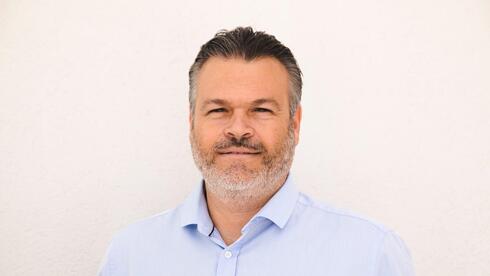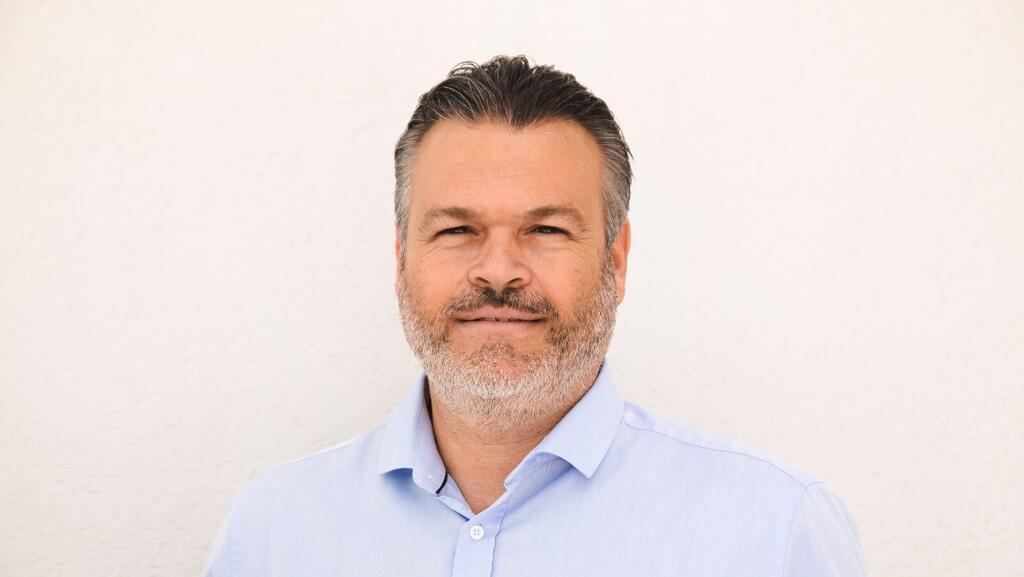
HR in War
Inside UBQ Materials’ “crisis, recovery, and resilience plan” for 7/10
The company shifted focus from its broader mission to build ‘a world without waste’ and directed its efforts to help its immediate employees
“All companies take measures to improve safety and well-being. We still have a climate crisis, and we still need to work together toward ‘a world without waste’, and we intend to focus on our vision more than ever,” said Gil Felus, COO of UBQ Materials. “We will continue to take and adapt security and employee care measures worldwide so our people feel secure, cared for, and empowered to bring this about.”
HR in War explores how companies in Israel are adapting in unusual times. CTech believes the world should know about the atrocities committed on 7/10 while also highlighting the continued resolve and resistance of the Israeli tech ecosystem.
UBQ Materials says it implemented a “crisis, recovery, and resilience plan” which included supporting employees, ensuring inventory could get to customers, bringing its Zeelim facility back online; and committing to starting the production at its facility in Bergen Op Zoom, Netherlands. Sadly, it was also grieving the loss of two of its employees and several of their family members.
Company name: UBQ Materials
Your name and title: Gil Felus, COO
Names of founders and upper management: Co-Founders Yehuda Pearl, Jack (Tato) Bigio, and Rany Lev; Executive Chairman Albert Douer; Co-CEOs Jack (Tato) Bigio and Albert Douer; COO Gil Felus; CCO Patricia Mishic O’Brien; CFO Ronen Cohen.
Field of activity: Climatetech
Number of employees: 109 worldwide
Office location: HQ is in Tel Aviv with two plants: one in the Kibbutz Zeelim in the south of Israel, and the second in the Bergen op Zoom, Netherlands.
On a scale of 1-10, how much did the war disrupt operations at the company?
Six. Our operations in Zeelim, Israel were disrupted by the attack in the southern part of the country, where two of our employees living in the adjacent communities to Gaza were killed and others relocated to different cities around the country, given the local security situation.
We implemented our crisis, recovery, and resilience plan: first, to support, rehouse, and reequip our employees; second, to ensure inventory could get to customers by moving it to our international warehouses in the Netherlands, U.S., Colombia, and Brazil; third to bring the Zeelim facility back online; and fourth to ensure ongoing international continuity with the impending start of production at our facility in Bergen Op Zoom, Netherlands. Our global operations have remained constant.
We received full backing from our colleagues and partners around the world and managed to keep operations running.
What consequences have you experienced from these disruptions?
Two of our team members, Hadar Rosenfeld and Uri Russo, were sadly killed in the attacks, together with dozens of friends and family members, including Mira Stahl, the daughter-in-law of our CTO, Gadi Stahl.
Some of our employees lost their homes, and most of them were evacuated to a distant location (about 150 km from the location that was their home) and we are providing the survivors with any needs not met by the government. This includes supporting their families with shelter, financial support, physical security, and psychological assistance.
The situation is also complex, although at a different level, for our other Israeli employees who were not directly affected by the attacks. Schools have restarted partially and there is the constant threat of missile attacks. We have provided everyone with the flexibility to work while being able to prioritize their families.
What are the two major challenges you are coping with these days?
Safety: All our UBQ team members should feel safe in their homes and workplaces and empowered to do their jobs with functional and emotional support. We are now implementing our established company security plans throughout our global footprint, including our soon-to-open facility in the Netherlands, and our commercial and distribution centers in the U.S. and Latin America.
Availability of our plant workers in Zeelim: Most of them were evacuated from their homes, and we are trying to provide them with temporary housing solutions.
Our employees are our company’s most important asset, and taking care of their welfare is our number one priority.
What support do you provide to employees?
Our employees always come first, especially when it comes to a crisis of this kind. This includes concern and care for the community where they live and UBQ operates. Our shareholders are fully supportive of this effort.
Even though our employees were absent from work for most of October, our company covered the entirety of their salary. We have also covered rental expenses, cars, and basic needs for those who need them. We also establish a fund for all affected employees where all donations are channeled through.
Do you have employees with foreign citizenship who asked to work from another country? If so, has movement been requested/approved?
Yes, three of our employees went to spend some time with their families abroad.
One of them is Nir Oz survivor, who, after being evacuated in Eilat for two weeks, decided to take a break and go with the kids to her parents in Denmark. She is recovering and gradually getting back to work remotely.
We support our employees’ decisions and understand any need to be with their families during this difficult time.
How do you communicate the situation to customers? Do you see hostility or support?
We get support from everyone around us. Heartwarming letters of support from all over the world - from our suppliers, partners, customers, and investors.
Our community has been fantastically supportive during this period. We have communicated what has happened and our continuity plans, and they have been sympathetic to our situation and very happy to see our ability to continue operating.
Our customers should feel reassured that we have a global operation with team members in the Netherlands, South Florida, Colombia, Brazil, Singapore, and throughout our global worldwide network. Our financial situation is secure, having just completed a large financing round, and our plant in the Netherlands is starting up before the end of the year.
In the event employees feel they encounter hostility, how do you guide them to respond to the situation?
All companies take measures to improve safety and well-being. We still have a climate crisis, and we still need to work together toward “a world without waste”, and we intend to focus on our vision more than ever. We will continue to take and adapt security and employee care measures worldwide so our people feel secure, cared for, and empowered to bring this about.














